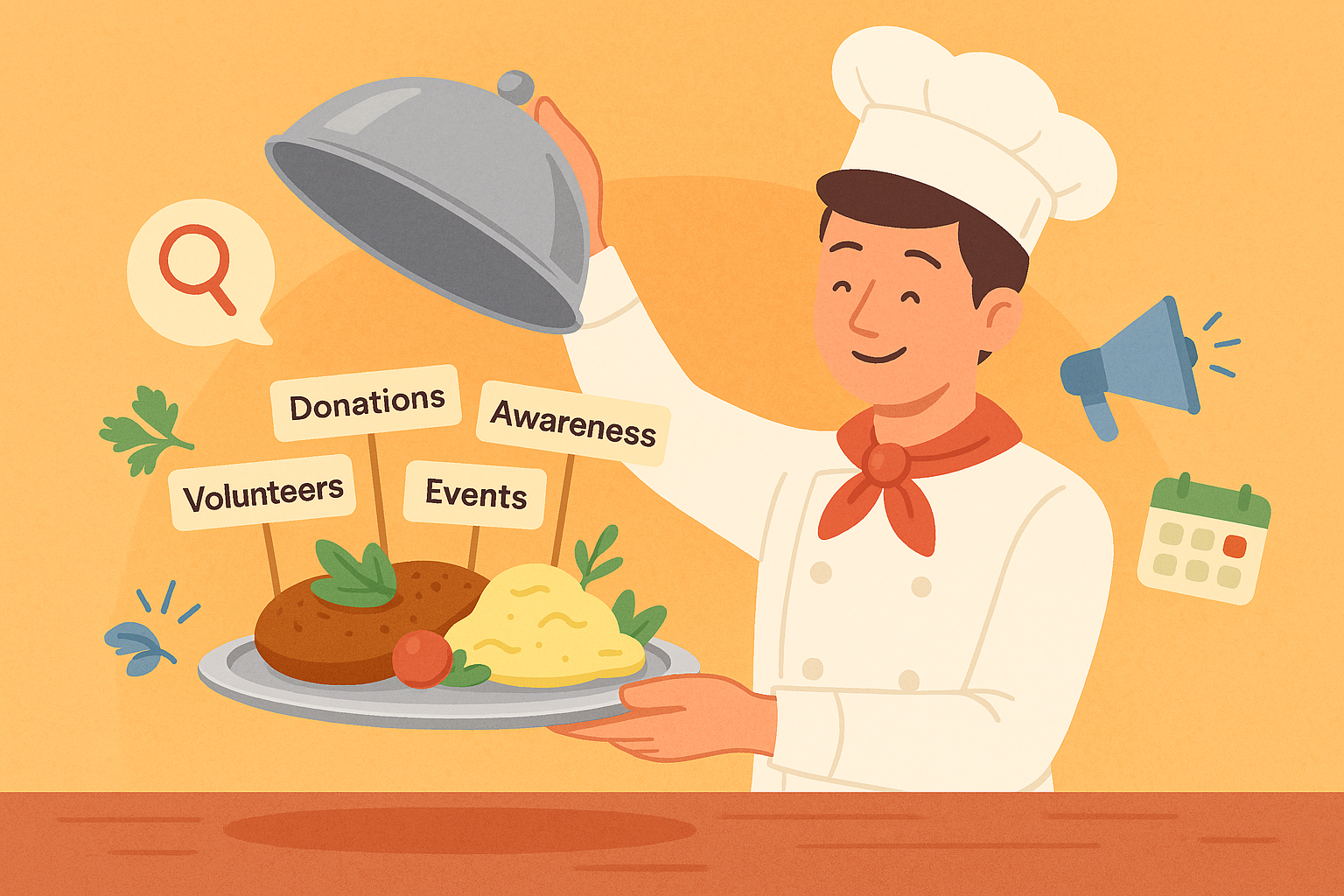Setting Up Your First Google Ad Campaign
Congrats—you’ve successfully made it through the Google Ad Grant application! Now it’s time to launch your very first campaign. Don't worry if the process feels unfamiliar; we're here to walk you through it, clearly and calmly.
Step 1: Set Clear Campaign Goals
Start by deciding exactly what you want your campaign to achieve:
Increase donations
Recruit more volunteers
Raise awareness about your mission
Boost event attendance
Knowing your main goal right away helps you keep everything else aligned.
“We had the Google Grant for years but never understood how powerful it could be until we worked with EFM. They identified fundraising opportunities beyond our wildest dreams, driving real dollars in tracked income from our advertisements. Who knew Google Grant credits could be this valuable! Thank you, EFM!”
Step 2: Organize Your Campaign Structure
Google Ads uses a simple structure that makes managing your ads easier:
Campaigns: Big-picture objectives (e.g., "Donations")
Ad Groups: Smaller, more targeted categories (e.g., "Annual Giving" or "Monthly Supporters")
Ads and Keywords: Individual ads are designed around specific search terms
Aim to have each campaign focus clearly on one primary objective.
Step 3: Choose the Right Keywords
Keywords are the words or phrases people type into Google when searching. Here's how to find the best ones:
Use Google's Keyword Planner to identify relevant and popular keywords.
Pick specific keywords closely tied to your nonprofit’s work.
Organize your keywords into tight, focused groups to enhance your ads’ relevance.
Tip: Combine general keywords ("donate food") with specific phrases ("donate food to local pantry") to attract meaningful traffic.
Step 4: Create Engaging Ads
Your ads should communicate why someone should click on them and take action. Good ads include:
Headline: Clearly explain your goal ("Support Local Families – Donate Today")
Description: Offer a specific benefit or urgency ("Your donation provides meals for your neighbors. Every dollar counts.")
Call to Action: Be clear and direct ("Donate Now," "Join Us," "Learn More")
Step 5: Optimize Your Landing Pages
Ensure visitors land on a webpage that matches your ad's promise. A good landing page should:
Relate to your ad’s message.
Be easy to navigate and mobile-friendly.
Offer straightforward ways to donate, volunteer, or sign up.
Step 6: Launch and Improve Your Campaign
Once your campaign is running, keep a close eye on it:
Review your click-through rates (CTR), conversions, and keyword performance regularly.
Adjust your keywords, ad texts, and targeting based on real-world performance.
Keep refining to ensure continuous improvement.
Need a Helping Hand?
Launching your first campaign doesn't have to feel daunting. Electric Fork Media is here to help if you're stuck or need guidance.
Feel free to contact us for a free consultation. Together, we'll help your nonprofit harness its Google Ad Grant and make a meaningful online impact.


